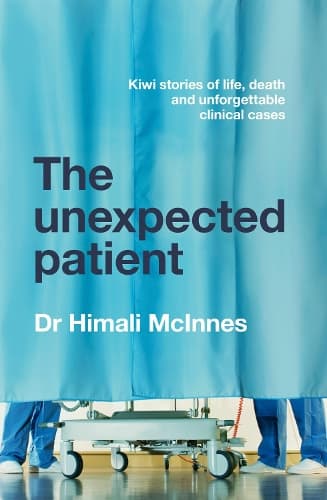Review: The Unexpected Patient: True Kiwi stories of life, death and unforgettable clinical cases
Reviewed by David Galler
At the heart of medicine are people and their stories. There is the doctor or the nurse or some other health professional and, of course, the person who has come to see them, sometimes with their whanau, more often than not on their own. Often they present with a specific and straightforward condition for which we have a range of treatment options available. These are always carefully chosen and more often than not that choice is determined by the science of medicine.
However for some, there are deeper issues at play, their origins lying in the past but manifest in the present. Unchecked, the impact of those may continue and amplify long into the future. When that seems likely to be the case, the best way a carer can begin to help that person is first to listen.
Tuning in and identifying those patients in how they present by what they say and don’t say is to begin to understand their real needs. That is the art of medicine.
Knowing the science and practising the art is the context in which the collection of stories in The Unexpected Patient sits. They are told, through the eyes of a variety of health professionals interviewed by the author, Dr Himali McInnes.
These are rich and evocative vignettes that range across time and place. They traverse a wide variety of presentations from birth to death; conditions common to general practice and to specialty medicine; health policy as well as the pervasive deadening and ongoing impact of insitutional racism on individuals, families, communities and society. Together they explore a wide variety of interactions between health professionals and their patients and the impact they have on both.
Myocardial infarction, addiction, obesity - these are just labels, conditions, names, words on a page, as too are their treatment guidelines. In the best case scenario the treatment trumps the disease, one cancels out the other, and we are restored to have a fresh start. If only it was always like that but sadly it isn’t.
Each of us - patient, doctor, nurse, family member - are unique individuals despite having so much in common. How each individual responds to changing circumstances, to suffering, to stories of suffering, exposure to infection, accident and illness is unique too, despite being given a veneer of commonality when co-horted into a diagnostic category.
It is these permutations and combinations that make the practice of medicine so interesting and challenging and for the carer, it demands both a deep knowledge of the science and the art of their trade. There is so much more to being a good clinician than clinical competence, that is at best an entry level criterion when employing or seeking out a carer for yourself or a loved one. All of us deserve more than that.
These complexities are on show and writ large in this excellent collection of stories. For the reader they become real, tangible and accessible and will help them better recognise who amongst us caring professionals can best care for them.
What is also so special about this book is Dr McInnes’s approach and style. The healthcare professionals interviewed here have themselves been deeply affected by their own encounters with their patients and their situations. Their stories are retold by the author with the same compassion and insight that I am sure Dr McInnes has for her own patients.
Listening and understanding are essential elements for successful doctoring. They are the cornerstone on which healing relationships are built and, in turn, it is these that ultimately promote reconciliation for those whose past plays such a troubling role in their present.
Past trauma, including the impact of colonisation and institutional racism, are endemic for many in Aotearoa New Zealand, leaving people struggling in isolation and depression. The feeling of low self esteem and self worth that so many in this position feel plays out in many ways: neglect, poor physical health, addiction, violence, psychological disturbance and in some cases psychosis.
People become trapped in the present, living from moment to moment without the wherewithal to craft a better future for themselves without help and some levelling of the playing field, whether that be by regulation or the advocacy and work of people who care, people like Himali McInnes and the other health professionals whose stories are told here.
Whilst the doctor has many roles, primarily it is to be a confidante, to provide a safe haven for their patients, to listen and understand and for those lost, begin the work to restore their sense of place, to help them reconnect with their past, their culture and beliefs and ultimately to allow them to grow back into their skin to feel the joy in life that they are entitled to.
This too, is the joy of medicine and it takes caring and carers to a new level. One where patients heal and the carer, becomes a better version of themself.
Reviewed by Dr David Galler
Read the first chapter from The Unexpected Patient here https://www.ketebooks.co.nz/all-book-reviews/2021-first-chapters-the-unexpected-patient
